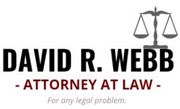
Technically, “probate” is a legal process that verifies the validity of a deceased person’s will. However, both non-lawyers and lawyers often use the term “probate” to refer to the process of administering a deceased person’s estate such as, for example, dealing with creditors and distributing assets to those entitled to receive them. This process also takes place when the deceased didn’t have a will, except that then the laws of intestacy and other probate code statutes will determine how to distribute the deceased’s assets. If you encounter any of the challenges below during this process, a probate attorney can help you navigate them.
What Issues Can Probate Cause?
1. Unwilling Personal Representative or Executor
The Personal Representative (or executor) is the individual that the deceased appoints to carry out the terms of the will and oversee the probate process. In some cases, an individual may have been named a Personal Representative (or executor) unknowingly or may not want the responsibility of the role or be able to perform that task. In such circumstances, the court must appoint another individual for the duty. Usually, this is done upon the application of an “interested party” and all of the interested parties may not agree as to who should act as the Personal Representative (or executor)
2. Disputes Among Beneficiaries
Sometimes, a person’s will contains surprises. Family members may expect to inherit certain assets, only to find out that someone else is the intended recipient. When conflict arises, the disputing family members can hire a probate attorney to contest the will. However, you can only dispute it if there is a valid legal question about the document, such as if the deceased was unduly influenced to write it.
3. Disputes Over Value

Ensuring assets receive the appropriate valuation is essential to paying the correct amount of taxes on the estate. This is particularly significant for high-value estates, as tax bills can vary significantly depending on the worth of properties and other key assets. In some cases, you can appeal the valuation of an asset to establish a lower market value, thus resulting in a lower tax bill.
4. Multiple Versions of a Will
If the deceased had more than one version of a will, it can be challenging to determine which was the most recent, and thus, valid. This is significant because the newest document always supersedes previous versions. Contacting the attorney of the deceased should reveal answers, but this can add time and effort to the probate process.
5. Varying State Laws
If the deceased had assets in various states, they may be subject to different inheritance, probate, and tax laws in each one. To ensure the legal distribution of all assets and avoid mistakes, you should seek the assistance of an experienced probate attorney for these complex estates.
If your loved one has passed away and their will must go through probate, turn to David R. Webb, Attorney at Law for assistance. This probate attorney has more than 30 years of experience helping residents throughout Lincoln, NE, secure the best possible outcomes for their situations. Find out more about the practice’s approach to probate law online. Schedule a consultation by calling (402) 477-7577
About the Business
(5 reviews)
Have a question? Ask the experts!
Send your question

